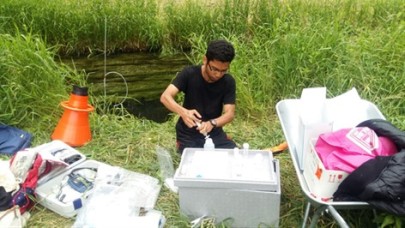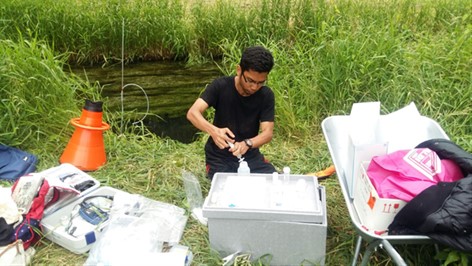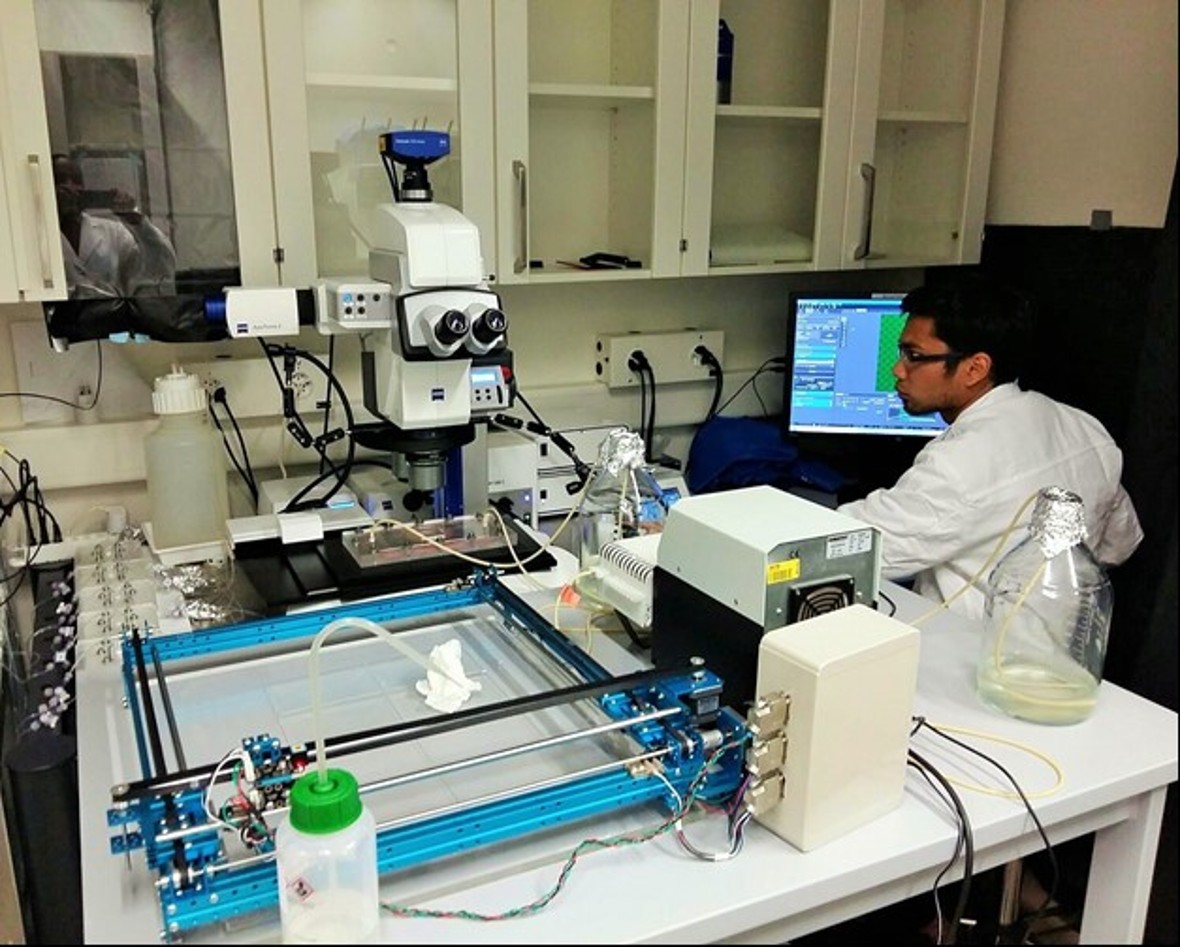A training network for enhancing the understanding of complex physical, chemical and biological process interactions in the hyporheic zone was formed in frames of Marie-Skłodowska-Curie program. In our laboratories, a batch and column experimental setup are used to study the sorption of micropollutants to hyporheic biomass in order to gain a mechanistic understanding of sorption processes in the hyporheic zone.
Marie Skłodowska-Curie Innovative Training Network (ITN) HypoTRAIN is being funded by EU Horizon 2020 for the period from January 2015 to December 2018. ITN HypoTrain is consist of several universities and research institutions, namely IGB Berlin Germany, Stockholm University, EAWAG Switzerland, KTH Sweden, University of Birmingham UK, Universität Bayreuth Germany, IWW Germany, Naturalea Spain, University of Roehampton UK and Cranfield University UK. The main aim of this ITN is to study hyporheic zone, a dynamic and complex transition regions between rivers and aquifers as well as key compartments for the functioning of aquatic ecosystems. There are numerous activities taking place within this ITN such as advance training course (ATC), joint field experiment (JFE), secondment, forum and etc. The ITN has selected a study site for these purposes: Erpe river in Berlin, Germany.
Together with the other ITN partners, IWW/TU Darmstadt is responsible for studying organic micropollutant fate under hyporheic conditions. As for this, Prof. Christoph Schüth (Principal Investigator) together with Muhammad Raza (Marie Curie Researcher) and Christine Kübeck (co-investigator) are conducting a sorption study of micropollutants to hyporheic biomass in order to gain a mechanistic understanding of sorption processes in the hyporheic zone by using batch and column experimental setup. There are 109 pharmaceutical compounds have been selected as the main organic micropollutants to be studied within the project. The present work is involving three pharmaceuticals namely carbamazepine, ibuprofen and sulfamethoxazole, which are being tested for sorption using batch and column experiments. This study also includes cultivation of biofilms, which are primarily a conglomeration of different types of biopolymers known as extracellular polymeric substances. The biofilms are cultivated within column experiments, with the aim to elucidate the role of biofilms in sorption processes. A joint field experiment (JFE) was held in Berlin in June 2016 where all ITN partners participated together for conducting field measurements, samples collection, laboratory-scale analysis, forums as well as research discussion. Additionally, the second joint field experiment (JFE) also took place in Birmingham UK in June 2017 where flume experiments were conducted by the ITN partners for studying the fate of micropollutants in the hyporheic condition.
From this study, we expect to generate sorption isotherms and sorption rate constants for different micropollutants on the different organic matter. Moreover, the importance of sorption processes in the hyporheic zone for the mobility and bioavailability of organic micropollutants will be quantified. These results will be combined together with the other ITN partners in order to understand hyporheic attenuation processes of micropollutants in a holistic way. Kindly visit the official website of HypoTRAIN for more information about our activities, podcasts and publications: http://www.bayceer.uni-bayreuth.de/hypotrain/?lang=en
Project Acronym: ITN HypoTRAIN
Country, Continent: European countries
Funding agency: EU Horizon 2020, Marie-Skłodowska-Curie grant
Years of activity: 2015-2018
Responsible persons: Muhammad Raza, Christoph Schüth, Christine Kübeck






